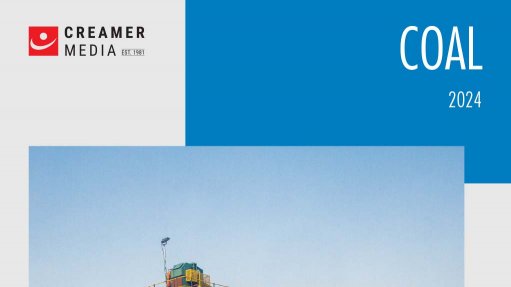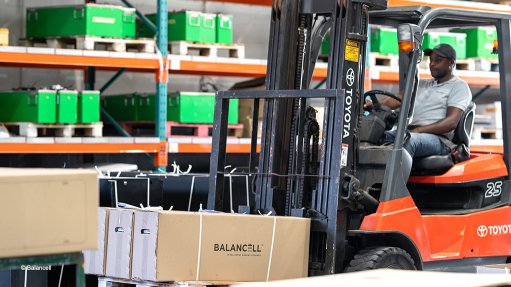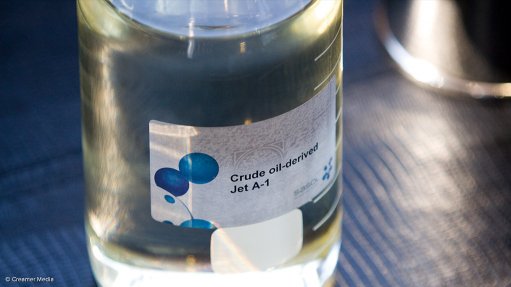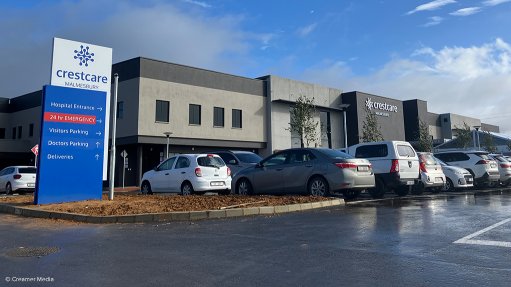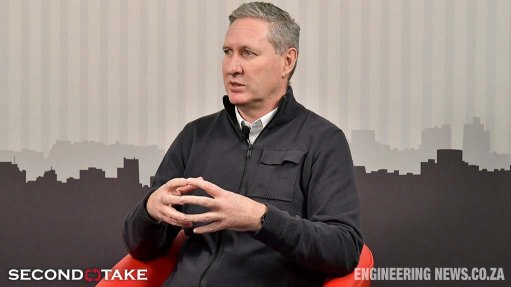New technology offers promise of speedy, compliant cross-border trade
This article has been supplied as a media statement and is not written by Creamer Media. It may be available only for a limited time on this website.
New technology such as AI, data analytics and the Internet of Things offers exciting opportunities to enhance the safety and trade compliance of cross-border road shipments, while ensuring efficient, streamlined traffic flows. This was the message of a paper delivered at the Southern African Transport Conference (SATC) held in Tshwane last week.
Titled Novel System For Compliance Monitoring of South African Cross-Border Transport, the paper by AJ Hoffman, SJ Rabe, JH Visagie, A Le Roux and M Thoso concluded that “Industry 4.0 principles can be applied to implement a cross-border road transport compliance accreditation system by using existing data from a variety of sources”.
Road transport is responsible for at least 76% of cargo movement in Southern Africa, the paper states. But increasing use of the region’s roads for freight transport causes deterioration of road infrastructure and hampers road safety, with trucks being involved in most fatal road accidents.
At the same time, customs procedures have been put in place to protect legal traders from unfair competition by verifying the legal status of cross-border trade flows. Efforts to enforce compliance through intrusive enforcement can cause disruptions to all cross-border traffic.
The Cross-Border Road Transport Agency (C-BRTA) of South Africa last year launched the Operator Compliance Accreditation System (OCAS), to apply evidence-based compliance management to heavy truck transport operations.
The researchers, from the North-West University School of Electrical, Electronic and Computer Engineering, found that OCAS can be used to extract incident data representing non-compliant behaviour in real-time, and then translate it into long term behavioural characteristics.
These characteristics can then be used to determine the cross-border rights and benefits of transport operators.
“This requires the use of IoT (Internet-of-things) technology to collect data in real time from ongoing operations, and AI (artificial intelligence) applied to complex data sets to implement intelligent Green Lane systems,” the paper states.
These data-analytics techniques can be applied to assess vehicle, route, overload control, customs, and transport-operator compliance.
As all compliance data is collected in an unobtrusive manner, it is possible to implement a compliance enforcement system that acts against offenders without causing any disruptions to compliant operators.
Non-compliant operators would have their cross-border permits withdrawn, while compliant transport businesses would get Green Lanes treatment at border posts, weighbridges, and other processing points, resulting in faster vehicle turnaround and higher profitability. This would encourage participation in the system.
The OCAS concept, however, would only succeed if there is cooperation between different data custodians, as no single agency has access to enough data to extract all the required compliance measures, the authors point out.
For example, route compliance requires data from the C-BRTA (permit conditions and trip declarations), operators (GPS tracking data) and customs (ANPR camera and cargo manifest data). Overload compliance assessment would rely on eNatis data (vehicle ownership) roads authority data (static, WIM scale and ANPR camera data) and GPS tracking data from operators.
However, given this level of co-operation between stakeholders, the proposed system offers a vision of a safe, compliant and efficient regional trade network.
“The incentives provided to operators will enable the simultaneous improvement of trade efficiencies and trade compliance, resulting in improved economic performance of the region,” the researchers state.
- The Southern African Transport Conference ran from July 8 – 11 at the CSIR Conference Centre, with the theme, “Upskilling and reskilling the transport industry for current and future challenges.”
Comments
Announcements
What's On
Subscribe to improve your user experience...
Option 1 (equivalent of R125 a month):
Receive a weekly copy of Creamer Media's Engineering News & Mining Weekly magazine
(print copy for those in South Africa and e-magazine for those outside of South Africa)
Receive daily email newsletters
Access to full search results
Access archive of magazine back copies
Access to Projects in Progress
Access to ONE Research Report of your choice in PDF format
Option 2 (equivalent of R375 a month):
All benefits from Option 1
PLUS
Access to Creamer Media's Research Channel Africa for ALL Research Reports, in PDF format, on various industrial and mining sectors
including Electricity; Water; Energy Transition; Hydrogen; Roads, Rail and Ports; Coal; Gold; Platinum; Battery Metals; etc.
Already a subscriber?
Forgotten your password?
Receive weekly copy of Creamer Media's Engineering News & Mining Weekly magazine (print copy for those in South Africa and e-magazine for those outside of South Africa)
➕
Recieve daily email newsletters
➕
Access to full search results
➕
Access archive of magazine back copies
➕
Access to Projects in Progress
➕
Access to ONE Research Report of your choice in PDF format
RESEARCH CHANNEL AFRICA
R4500 (equivalent of R375 a month)
SUBSCRIBEAll benefits from Option 1
➕
Access to Creamer Media's Research Channel Africa for ALL Research Reports on various industrial and mining sectors, in PDF format, including on:
Electricity
➕
Water
➕
Energy Transition
➕
Hydrogen
➕
Roads, Rail and Ports
➕
Coal
➕
Gold
➕
Platinum
➕
Battery Metals
➕
etc.
Receive all benefits from Option 1 or Option 2 delivered to numerous people at your company
➕
Multiple User names and Passwords for simultaneous log-ins
➕
Intranet integration access to all in your organisation





